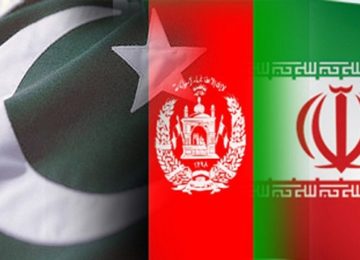The US National Intelligence Agency has excluded Afghanistan from its latest annual report on terrorist threats to national security, released Tuesday, despite documented evidence of Islamic State (ISIS) and Al-Qaeda presence in the Taliban-controlled nation.
This marks a stark shift from last year’s assessment, which referenced Afghanistan six times and the Taliban eight times.
The 2025 US Intelligence Community’s global threat report highlights Al-Qaeda leadership in Iran and its operatives in Somalia, Syria, and West Africa, but omits any mention of their activities in Afghanistan. This comes despite United Nations Security Council reports confirming Al-Qaeda and ISIS-Khorasan (ISIS-K) fighters remain active there. A UN report recently noted senior Al-Qaeda figures in rural Sar-e Pul, Kunar, Ghazni, Logar, and Wardak provinces, with lower-ranking members residing in Kabul under Taliban protection.
The omission follows the US decision to lift a bounty on Sirajuddin Haqqani, the Taliban’s interior minister, and two other Haqqani Network members. The move coincided with a US delegation visit to Kabul, led by Adam Boehler, Donald Trump’s hostage affairs envoy, and Zalmay Khalilzad, former US envoy to Afghanistan. The Taliban subsequently released an American hostage.
Taliban spokesperson Zabihullah Mujahid told Al Arabiya on Tuesday that discussions with Trump’s team included requests to control Afghanistan’s embassy in Washington and reopen the US embassy in Kabul. “We are awaiting their response,” he said.
The report identifies ISIS-K as a rising threat, describing it as the most capable South Asian affiliate for launching attacks abroad. It warns of the group’s efforts to expand into Central Asia, Iran, Russia, and the West, using online platforms to recruit and inspire attacks. Last year’s attacks in Russia and Iran, alongside arrests of ISIS supporters in Europe and the US, highlight its growing operational reach.
Al-Qaeda, meanwhile, retains its intent to target the US and its citizens, the report states. Leaders, some based in Iran, have sought to exploit anti-Israeli sentiment over the Gaza conflict to galvanise attacks against Israel and the US.
The report acknowledges the capabilities of Tehreek-e-Taliban Pakistan (TTP) and its historical ties to Al-Qaeda but stops short of addressing Pakistan’s repeated assertions that TTP uses Afghanistan as a safe haven. The UN has warned of TTP’s cross-border activities, yet the US assessment remains silent on the issue.
The Taliban insists it has suppressed ISIS-K in Afghanistan, yet the group’s Khorasan branch continues to stage attacks within the country. Last year, US intelligence flagged ISIS-K’s plans to target foreign entities in Afghanistan, alongside the Taliban’s restrictive policies on women and girls and its failure to address the nation’s humanitarian crisis.
The exclusion of Afghanistan from this year’s report raises questions about evolving US priorities as the Taliban seeks diplomatic engagement with Washington.
SOURCE: Afghanistan International








